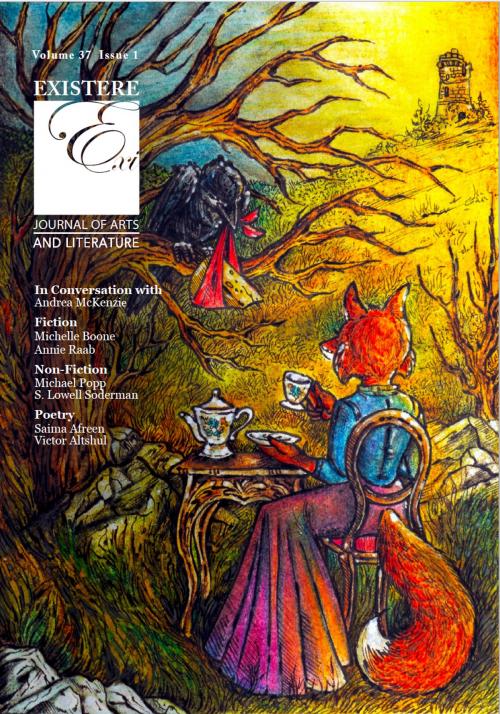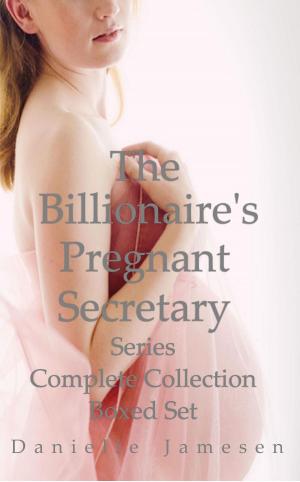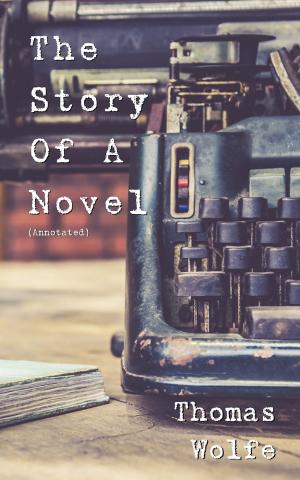Existere 37.1
Journal of Arts and Literature
Fiction & Literature, Anthologies, Short Stories, Romance| Author: | Saima Afreen, Jodi Adamson, Michelle Boone, N. Page, Savannah Sidle, S. Lowell Soderman, Justin Carpenter, Annie Raab, Victor Altshul, Ben Leib, M. W. Jaeggle, Sally Zakariya, Michael Popp, David Reuter, Mary Rykov, Carol Wellart, Jim Zola, David Sapp, Lauren Dick, Je-an Cedric Cruz, Madelaine Pries | ISBN: | 1230002192680 |
| Publisher: | Vanier College Council | Publication: | March 2, 2018 |
| Imprint: | Language: | English |
| Author: | Saima Afreen, Jodi Adamson, Michelle Boone, N. Page, Savannah Sidle, S. Lowell Soderman, Justin Carpenter, Annie Raab, Victor Altshul, Ben Leib, M. W. Jaeggle, Sally Zakariya, Michael Popp, David Reuter, Mary Rykov, Carol Wellart, Jim Zola, David Sapp, Lauren Dick, Je-an Cedric Cruz, Madelaine Pries |
| ISBN: | 1230002192680 |
| Publisher: | Vanier College Council |
| Publication: | March 2, 2018 |
| Imprint: | |
| Language: | English |
Growing up has always been hard work, but our 37.1 Fall/Winter 2017/2018 edition perfectly documents life’s strenuous journey. Though we may have had different upbringings, we have all faced adversity and milestones. Whether it was overcoming personal, academic, professional or social hurdles, life has seen us through them all. Our 37.1 edition is structured to explore and highlight key points of the life that our authors and artists have created through their submissions.
There comes a point in life when we have to realize that our parents are not invincible. That is not to say that they are bad people, just that they are human. Humans make mistakes. Humans make bad decisions. Michelle Boone’s “The Mathematician” invites us to watch as her protagonist deals with this very realization, as well as the hardships that accompanies it.
Life’s next hurdle comes when children realize that they are not the centre of the universe, and that they are millions of other people in the world that have had different upbringings, have faced different challenges and have learned different teachings. S. Lowell Soderman’s “Playing the Race Card” brings to light and discusses many controversial and provocative topics and viewpoints. To name a few, Soderman discusses Joseph Boyden and Elizabeth Warren’s claims of Native American heritage, society’s negative perception and treatment of Native Americans, as well as the manipulation of an individual’s ethnicity to suit their own desires. Though this might be offensive to some readers, keep in mind that awareness, a key element to growing and learning as an individual—the theme running throughout this edition, involves viewing life from as many perspectives as possible.
Through life’s next adventure, we are faced with withstanding the heavy weight of another’s gaze. In Annie Raab’s “The Artist” and Ben Leib’s “Fingerprints,” we are shown the effects of other people’s opinions and narrow-mindedness in two vastly different ways. With Raab’s piece, we are shown the internal struggle and aftermath of inner turmoil, whereas with Leib’s piece, we watch a woman choke down her pride and principles to survive in her troubled world.
Sadly, another element in growing up includes suffering through and moving on from a loss. Michael Popp’s “Something Broke on the Way to Enlightenment” takes us through the devastating road of loss and the long trek to recovery. Through various stages, we accompany Popp through his grieving process and cheer for him on his road to recovery. Through his long road to enlightenment, we grieve and rejoice beside him.
Though this life is not one that all will experience, everyone can relate to the struggles and hurdles that life offers. This edition provides an insight into hardships that you may not have experienced yet, or know all too well—either way, we welcome our readers to find solace and wisdom in our contributors’ works, for they carry important life lessons within.
Growing up has always been hard work, but our 37.1 Fall/Winter 2017/2018 edition perfectly documents life’s strenuous journey. Though we may have had different upbringings, we have all faced adversity and milestones. Whether it was overcoming personal, academic, professional or social hurdles, life has seen us through them all. Our 37.1 edition is structured to explore and highlight key points of the life that our authors and artists have created through their submissions.
There comes a point in life when we have to realize that our parents are not invincible. That is not to say that they are bad people, just that they are human. Humans make mistakes. Humans make bad decisions. Michelle Boone’s “The Mathematician” invites us to watch as her protagonist deals with this very realization, as well as the hardships that accompanies it.
Life’s next hurdle comes when children realize that they are not the centre of the universe, and that they are millions of other people in the world that have had different upbringings, have faced different challenges and have learned different teachings. S. Lowell Soderman’s “Playing the Race Card” brings to light and discusses many controversial and provocative topics and viewpoints. To name a few, Soderman discusses Joseph Boyden and Elizabeth Warren’s claims of Native American heritage, society’s negative perception and treatment of Native Americans, as well as the manipulation of an individual’s ethnicity to suit their own desires. Though this might be offensive to some readers, keep in mind that awareness, a key element to growing and learning as an individual—the theme running throughout this edition, involves viewing life from as many perspectives as possible.
Through life’s next adventure, we are faced with withstanding the heavy weight of another’s gaze. In Annie Raab’s “The Artist” and Ben Leib’s “Fingerprints,” we are shown the effects of other people’s opinions and narrow-mindedness in two vastly different ways. With Raab’s piece, we are shown the internal struggle and aftermath of inner turmoil, whereas with Leib’s piece, we watch a woman choke down her pride and principles to survive in her troubled world.
Sadly, another element in growing up includes suffering through and moving on from a loss. Michael Popp’s “Something Broke on the Way to Enlightenment” takes us through the devastating road of loss and the long trek to recovery. Through various stages, we accompany Popp through his grieving process and cheer for him on his road to recovery. Through his long road to enlightenment, we grieve and rejoice beside him.
Though this life is not one that all will experience, everyone can relate to the struggles and hurdles that life offers. This edition provides an insight into hardships that you may not have experienced yet, or know all too well—either way, we welcome our readers to find solace and wisdom in our contributors’ works, for they carry important life lessons within.















